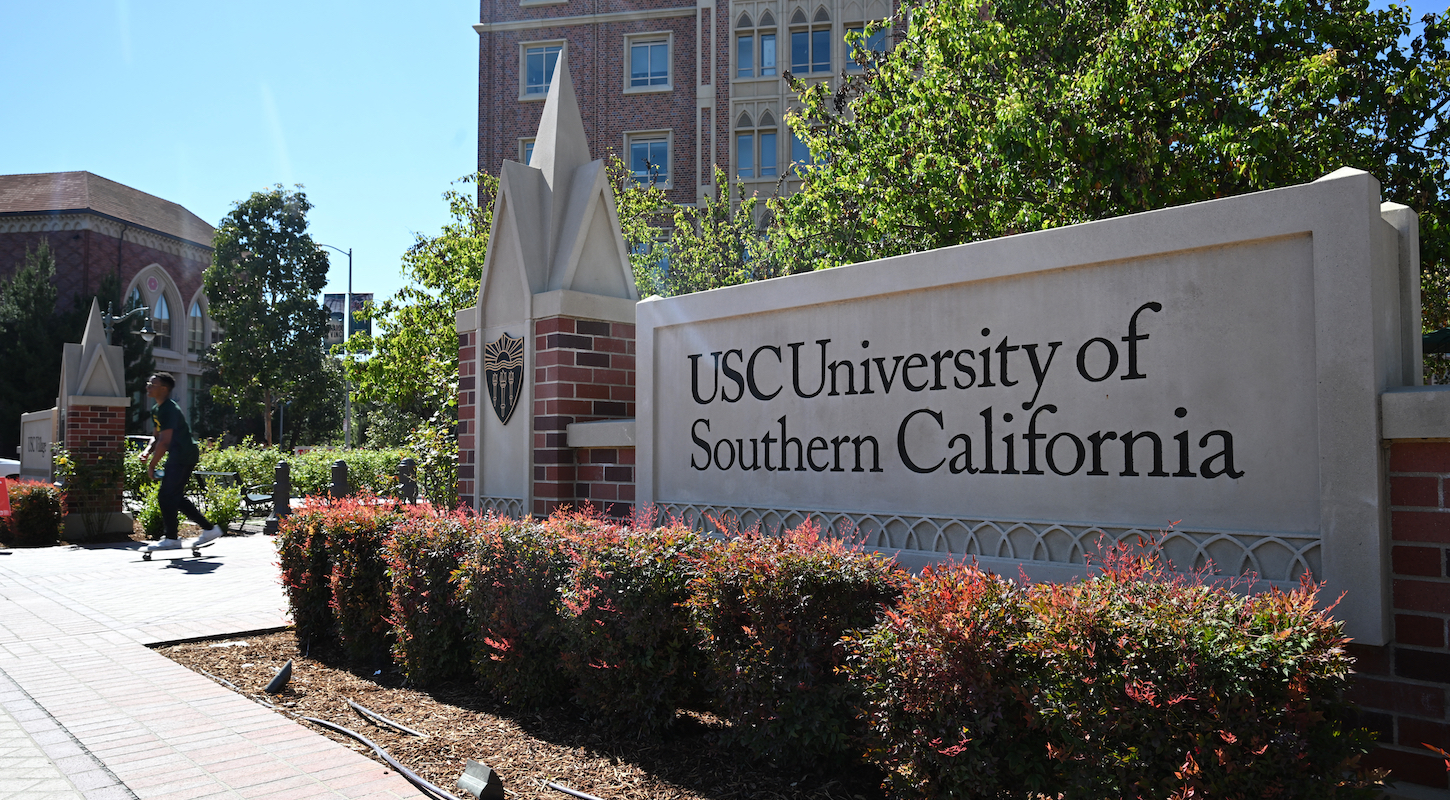Welcome to Margin of Error, a politics column from Tom Scocca, editor of the Indignity newsletter, examining the apocalyptic politics and coverage of Campaign 2024.
On Monday, the University of Southern California canceled its valedictorian's commencement speech. The word "cancel" has been stretched to include a lot of different things for a long time now, but here was the genuine item: The valedictorian, Asna Tabassum, was invited to give a speech at a certain time and place, and then the university declared that the speech wouldn't happen. The university had canceled it.
"To be clear: This decision has nothing to do with freedom of speech," USC's provost, Andrew T. Guzman, wrote in a university statement about how the valedictorian would not be allowed to make a speech. "There is no free speech entitlement to speak at a commencement. The issue here is how best to maintain campus security and safety, period."
One striking feature of the current McCarthyite moment is how wildly incoherent the operations of repression turn out to be. Obviously the provost's statement was bullshit, but what was truly alarming was that it didn't even know what kind of bullshit it was supposed to be.
Tabassum is a Muslim student who had posted pro-Palestinian messages online, and people on and off campus responded to her selection as valedictorian with that frenzied mix of moral panic, bullying, and abuse that has defined the past six months. Some people claimed to feel threatened by Tabassum; other people reportedly issued threats against her—although Tabassum noted, in her own statement, that she was "not aware of any specific threats against me or the university" and that "my request for the details underlying the university’s threat assessment has been denied."
Facing this, USC evidently couldn't decide in which direction it was supposed to pander. Safety and public order have been reliable excuses for getting student protest under control while Israel carries out total warfare against Gaza—rather than weighing in on the content of the protests, universities simply declare that the place or manner of the protesting violates campus rules (as protests, being protests, always have), and that their job is to protect their community from disruption. Aren't these the same students who've been complaining about microaggressions and filing Title IX claims, after all? How can they object to seeing their campus secured as a safe space for everyone?
If USC wanted to say it was simply bowing to safety concerns, though, what was the point of declaring that there was "no free speech entitlement" involved? That part read as a rebuke of Tabassum, sandwiched between declarations that Tabassum's speech had nothing to do with the decision. It cast Tabassum's plan to speak as selfish, an unreasonable burden she was trying to load onto the university.
Yet Tabassum did have an entitlement to speak at the graduation, literally. The University of Southern California gave Tabassum the title of valedictorian: "farewell speaker," from the Latin. The USC valedictorian speaks at the USC commencement. Or did, anyway.
What are words—or concepts or principles—to a campus administrator? Two different university presidents have been hounded out of office, with the New York Times bugling along, for fumbling around with meaning and nuance when presented, under the auspices of the House majority, with the premise that the words "from the river to the sea" were tantamount to genocide. This morning, the Times reported in a front-page story that the president of Columbia, Nemat Shafik, in her turn under the inquisition, had "seemed more willing … to condemn and potentially discipline students and faculty" who used the phrase. "Columbia President Testifies That Antisemitism Warrants Punishment," the full-width jump headline read. Today, Shafik called in the NYPD to tear down a protest encampment on the Columbia campus.
The story of Tabassum's disinvitation had run in the paper the day before, on page A15. It included a quote from a campus group called Trojans for Israel saying that Tabassum “openly traffics antisemitic and anti-Zionist rhetoric." Online, the Times indexed it with a bundle of stories under the heading "Campus Antisemitism."
It wasn't merely that the pro-Palestinian side of the debate was being dismissed as antisemitic. It was that Tabassum was being reduced to a token in the dispute over the dispute over Gaza. Again, by its own account, USC had canceled the speech because of the reaction to Tabassum speaking at all, not because of anything she planned to say. In that sense, the provost almost had a point about free speech being irrelevant—the commencement speech was being canceled not to prevent people from hearing its contents, but to keep Tabassum herself off the stage.
The provost wrote:
Unfortunately, over the past several days, discussion relating to the selection of our valedictorian has taken on an alarming tenor. The intensity of feelings, fueled by both social media and the ongoing conflict in the Middle East, has grown to include many voices outside of USC and has escalated to the point of creating substantial risks relating to security and disruption at commencement. We cannot ignore the fact that similar risks have led to harassment and even violence at other campuses.
The intensity of feelings! Which feelings were those, exactly? And why was the university validating them? A school where a valedictorian can't speak at commencement because of outside threats is not maintaining campus safety and security. It's not maintaining a campus at all.






